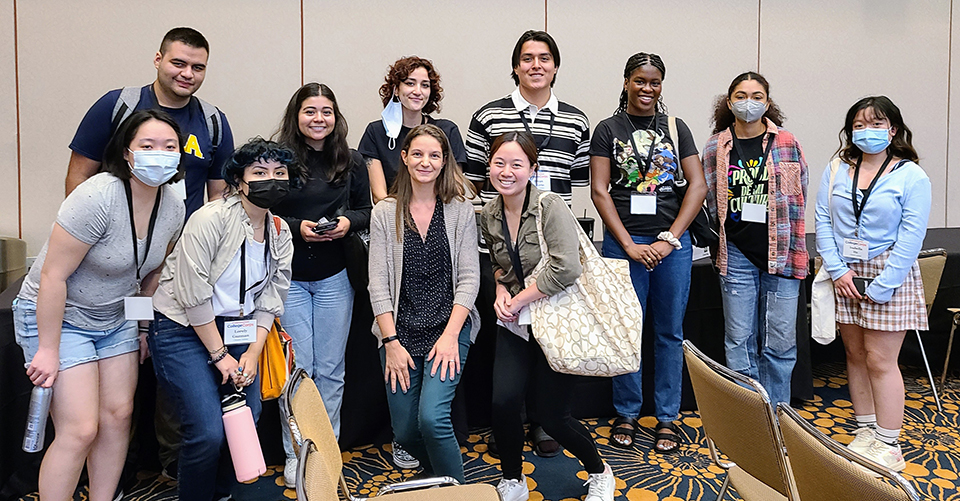Fellows to Help CSUN Faculty, Students Tackle Impact of Climate Change

The UCLA #CaliforniansForAll College Corps at their first meet and greet with the CSUN team. CSUN is hosting a dozen fellows — from the California Volunteers program in the Office of the Governor — who will be working with the university’s faculty and students to develop ways to mitigate the impact of climate change. Photo courtesy of Sarah Johnson.
California State University, Northridge will be hosting a dozen fellows — from the California Volunteers program in the Office of the Governor — who will be working with CSUN faculty and students to develop ways to mitigate the impact of climate change.
Nine of the fellows are UCLA undergraduate students and members of #CaliforniansForAll College Corps. Three are fellows with the California Climate Action Corps, serving after graduating from college. Both programs are designed to engage students and members of the public across the state in solving problems in their communities.
In this instance, the fellows will be working with CSUN’s Institute for Sustainability and will take part in efforts to educate members of the campus and surrounding community, including K-12 students, about ways to tackle the effect climate change is having in their neighborhoods, including food insecurity.
“This is a wonderful opportunity to work across campuses and build networks between faculty, students and members of the community to address the everyday impact climate change is having on our communities,” said Sarah Johnson, lead sustainability specialist with the Institute for Sustainability. “A core part of our mission and values as an Institute and a campus is service. Regardless of their backgrounds or their majors, there is one thing that these fellows have in common with each other and our faculty and students — they want to make a difference.”
#CaliforniansForAll College Corps was launched earlier this year by Gov. Gavin Newsom to connect college and university students of different backgrounds with enriching service opportunities throughout the state. The program will provide up to 6,500 college students over two academic years with service opportunities in critical issue areas such as climate action, K-12 education, and COVID-19 recovery. Students who complete a year of service receive $10,000 while gaining valuable experience serving in their communities.
The California Climate Action Corps, which launched in 2020, is the first-in-the-nation, state-level civilian climate corps. It deploys fellows to support local climate-action projects in frontline and low-income communities across the state. It is designed to empower Californians to take meaningful action to protect their homes, health and communities against the harshest impacts of climate change. For their service, the California Climate Action Corps Fellows receive a $30,000 living stipend; a $10,000 scholarship to help pay down student debt or pay for college in the future; and training and professional development to gain valuable and transferable green job skills.
Johnson said several of the UCLA students — whose majors range from psychology and anthropology to architecture and engineering — will be working with the California Climate Action Corps Fellows to plant and harvest food, launch a community compost program and design an educational program on climate change for K-12 students. Others will be working with CSUN faculty and students to empower community members to take on environmental injustices in their neighborhoods or to use the lessons learned by the university’s hydroponic food farm — a freight container in which CSUN is growing produce — to help tackle food insecurity among CSUN students.
“Part of my aim as a philosophy major is to gain an understanding of how altruism can be utilized to solve societal and community problems created by structural inefficiencies,” said UCLA student Brian Valerio. “I chose climate action as an issue to focus on because it impacts all facets of modern living such as accessible food, affordable housing, and community orientation. From my fellowship with CSUN, I hope to have a career that allows me to contribute to the effort to fight climate change.”
Johnson noted that the impact of climate change does not effect just one discipline or community.
“It affects all of us,” she said. “We all need to work together to mitigate the impact of climate change.”

 experience
experience